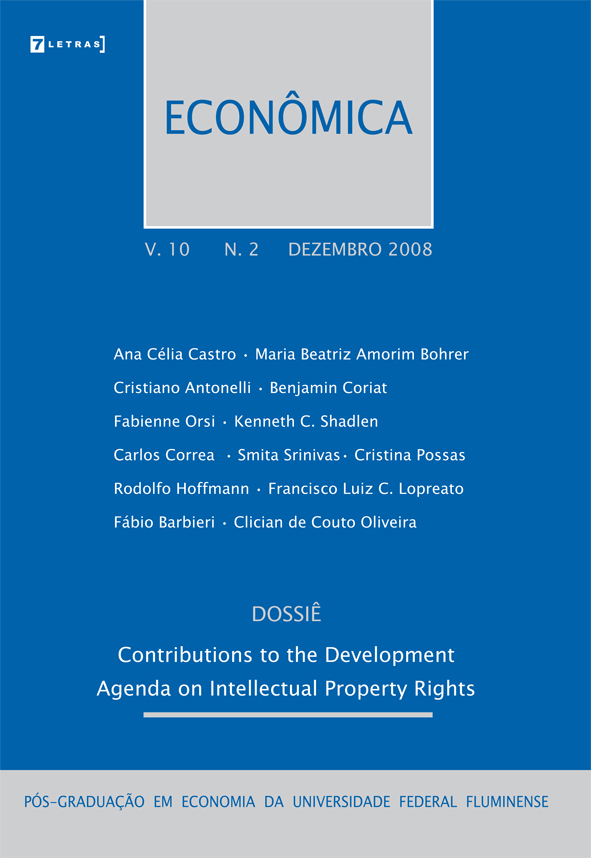Designing patent policies suited to developing countries needs
DOI:
https://doi.org/10.22409/reuff.v10i2.34890Resumo
Despite the internationalization of the patent system that started morethan one century ago and, particularly, the establishment of minimum standardsof protection under the Agreement on Trade-related Aspects of Intellectual PropertyRights (TRIPS), States still enjoy a certain degree of discretion to determinekey substantive aspects relating to the grant of patents. Initiatives for furtherharmonization of the system have not materialized yet. Recent trends in somedeveloped countries point to a drastic relaxation of the standards of patentability,particularly in connection with the inventive step. Developing countries neednot follow the same approach; they may apply strict standards of patentabilitycompatible with their innovation systems and reward incremental innovationsby means of utility models rather than patents. They may also develop rules todeal with the specificities of traditional knowledge.Downloads
Downloads
Publicado
Edição
Seção
Licença
Autores que publicam nesta revista concordam com os seguintes termos:
a.Autores mantém os direitos autorais e concedem à revista o direito de primeira publicação, com o trabalho simultaneamente licenciado sob a Licença Creative Commons Attribution que permite o compartilhamento do trabalho com reconhecimento da autoria e publicação inicial nesta revista.
b.Autores têm autorização para assumir contratos adicionais separadamente, para distribuição não-exclusiva da versão do trabalho publicada nesta revista (ex.: publicar em repositório institucional ou como capítulo de livro), com reconhecimento de autoria e publicação inicial nesta revista.
c.Autores têm permissão e são estimulados a publicar e distribuir seu trabalho online (ex.: em repositórios institucionais ou na sua página pessoal) a qualquer ponto antes ou durante o processo editorial, já que isso pode gerar alterações produtivas, bem como aumentar o impacto e a citação do trabalho publicado (Veja O Efeito do Acesso Livre).

